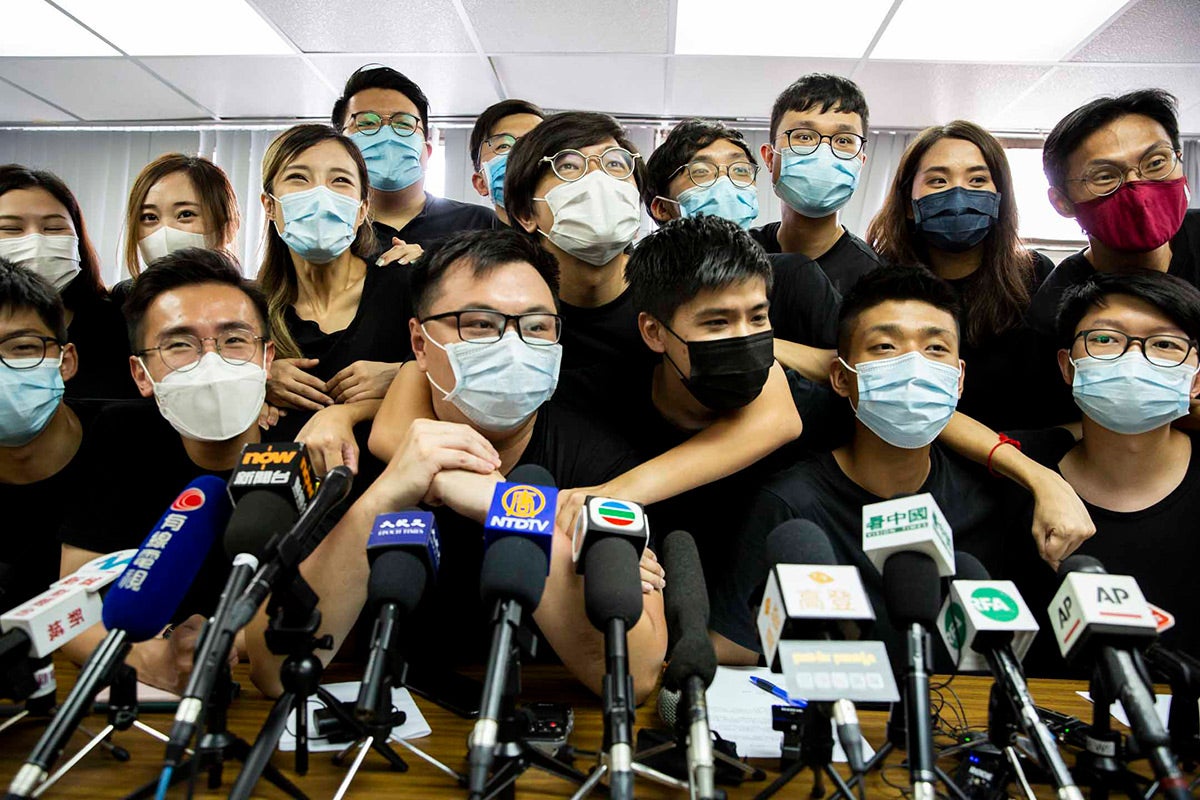
Human Rights Watch (HRW) on Aug. 22 published a call for Hong Kong to end its unfair trial practices against a group of 47 lawmakers and activists charged under the National Security Law imposed in 2020. Calling for the dropping of charges against the 47 and for their immediately release, HRW said the crimes established by the law are “overly broad and arbitrarily applied.”
After the media ban on coverage of the cases was lifted, the prosecution named five of them as “major organizers”—Benny Tai, a legal scholar; Au Nok-hin, ex-lawmaker; Chiu Ka-yin and Chung Kam-lun, ex-district council members; and Gordon Ng Ching-hang, an activist. In these cases, the prosecution is calling for harsh sentences including life imprisonment, saying that they sought to “paralyze the operations of the Hong Kong government.”
The 47 were charged together in February 2021 over their participation in primary elections for the Legislative Council the previous year despite the election having been suspended. Many have been detained for as long as 18 months. Authorities have repeatedly denied consular access as required by international law to Gordon Ng Ching-hang, an Australian citizen.
HRW reports that the Hong Kong authorities have arrested nearly 200 people under the National Security Law, and prosecuted more than 110 of them. Ma Chun-man, an activist who was the first person sentenced under the law, received five years in prison for “inciting secession.”
Maya Wang, senior China researcher at HRW, said:
Hong Kong’s biggest national security case is wrapped in legal language, but it’s just part of the Chinese government’s relentless efforts to smother Hong Kong’s democracy movement. The very real threat of life in prison for peaceful activism shows Beijing’s utter contempt for both democratic political processes and the rule of law
In July, the UN Human Rights Committee called for Hong Kong authorities to take urgent steps to repeal the National Security Law, and raised concern about the many civil society organizations that have relocated or closed down since the law was enacted.
From Jurist, Aug. 23. Used with permission.
See our last reports on the National Security Law, Benny Tai, Au Nok-hin, Ma Chun-man, the postponed elections, and the unauthorized primaries.
Image: Lam Chun-tung/Initium via HRW





HK teens charged under National Security Law
Five teenaged activists have been sentenced to three years detention in Hong Kong under the National Security Law. The prosecution said the defendants had used social media and street tables to advocate a “bloody revolution” against the Chinese state. Judge Kwok Wai-kin said: “Even if one person is incited, Hong Kong’s stability and residents’ safety could have been greatly harmed.” The youths, aged between 16 and 19, were members of Returning Valiant, a pro-independence group. (BBC News)
Hong Kong court upholds law against ‘inciting’ abstentionism
A Hong Kong court on Dec. 29 ruled a law that prohibits encouraging others not to vote in an election or to cast an invalid vote is constitutional, the Hong Kong Independent Commission Against Corruption (ICAC) reported.
The decision came in the prosecution of Jacky So Tsun-Fung, who was charged with one count of violating Hong Kong’s Elections (Corrupt and Illegal Conduct) Ordinance. So was accused of resharing a post on social media written by activist Hui Chi-fung that encouraged people to cast blank votes in the 2021 Legislative Council election.
After the provision was found constitutional, So pleaded guilty to the charge and was sentenced to two months’ imprisonment, suspended for 18 months.
The decision is the latest development in a spate of prosecutions for inciting people to cast invalid votes. Earlier this month, the Hong Kong ICAC reported that Wong Chi-yan had also pleaded guilty to an offence under the Elections Ordinance. Wong was reportedly charged alongside three others accused of similar offences.
Violations of the Ordinance carry a maximum penalty of three years’ imprisonment and a $200,000 fine. (Jurist)